Are you feeling a pinch in your finances and wondering if a salary advance might be the solution? A well-crafted request can make all the difference in getting the support you need from your employer. In this article, we'll share a simple, effective letter template that will help you communicate your needs clearly and professionally. So, if you're ready to take the next step in securing that much-needed advance, read on!
Employee Information
An employee seeking a salary advance may provide key information for context, including their name, employee ID, and department--essential for identification. Current salary figures, including gross and net amounts, clarify financial status. The reason for the advance, such as unexpected medical expenses or urgent home repairs, adds urgency and understanding to the request. Additionally, the proposed repayment plan, detailing amounts and timelines, showcases responsibility and planning, reassuring management of recovery feasibility. The request should also mention company policies on salary advances, such as limits or approval processes, reinforcing adherence to organizational protocols.
Request Details
A salary advance request may occur due to various personal financial emergencies such as unexpected medical expenses or urgent home repairs. The request might specify an amount needed, for instance, $1,500, to alleviate immediate financial pressures. Employees typically submit these requests in accordance with company policies, often requiring approval from supervisory staff. The request should also detail potential repayment terms, such as a deduction from future paychecks over a specified period, e.g., three months. Providing supporting documentation like medical bills or repair estimates can strengthen the case for approval. Timely communication through established channels, such as a company email system or employee portal, is crucial for maintaining transparency and adherence to company protocols.
Reason for Advance
Requesting a salary advance can arise from various financial needs or emergencies. Common reasons include unexpected medical expenses such as hospital bills, urgent home repairs like water damage requiring immediate attention, or essential travel costs for unforeseen family emergencies. Other factors may involve education-related expenses such as tuition fees or school supplies, which may require timely payment. Each of these situations can necessitate the timely access to funds not yet received in the regular salary cycle, making a salary advance a crucial support mechanism for employees facing financial pressures.
Approval Conditions
Salary advance requests often involve specific approval conditions that must be met for successful processing. Human Resources departments typically require detailed documentation, including the employee's identification information, such as employee ID and department name. Financial stability of the employee is assessed, checking for outstanding loans or previous advances that could impact repayment. The request must align with company policies, requiring written justification for the advance, including urgent financial needs like medical emergencies or education expenses. Payment terms, detailing the amount requested, repayment schedules, and deduction methods from future salaries, are critical. Approval often necessitates signatures from direct supervisors and the finance manager, ensuring accountability and compliance with organizational financial guidelines.
Repayment Terms
A salary advance request typically includes detailed information about repayment terms, outlining the specifics of the financial arrangement. The request may specify the amount of the advance, which could range from a few hundred to several thousand dollars, based on employee needs. Repayment terms typically cover a duration of time, often specified as a number of pay periods, such as four to eight weeks. The document should clarify whether repayment occurs through automatic payroll deductions, identifying the percentage of each paycheck that would be allocated towards the advance until fully repaid. Additionally, the request may detail any applicable interest rates or fees, which could add to the total amount owed over time. Including these elements ensures transparency between the employer and employee regarding repayment expectations and timelines.
Letter Template For Salary Advance Request Approval Samples
Letter template of salary advance request for personal financial hardship.
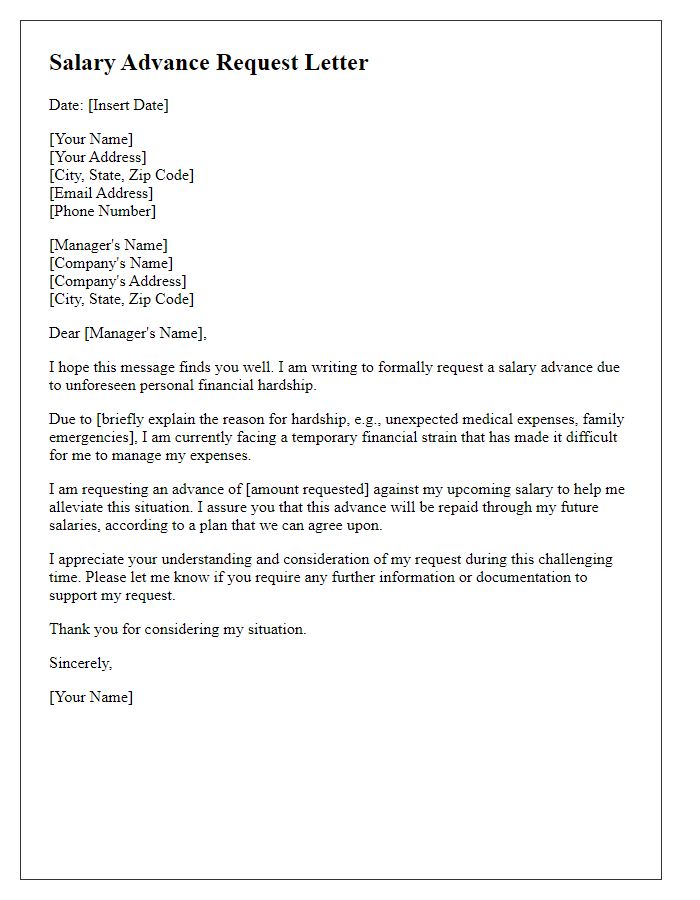

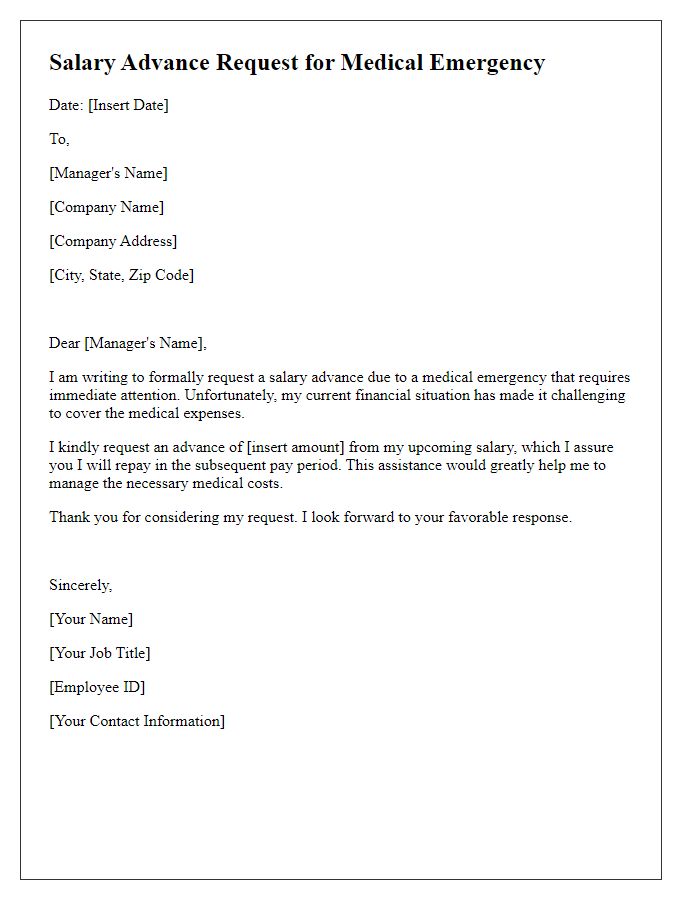
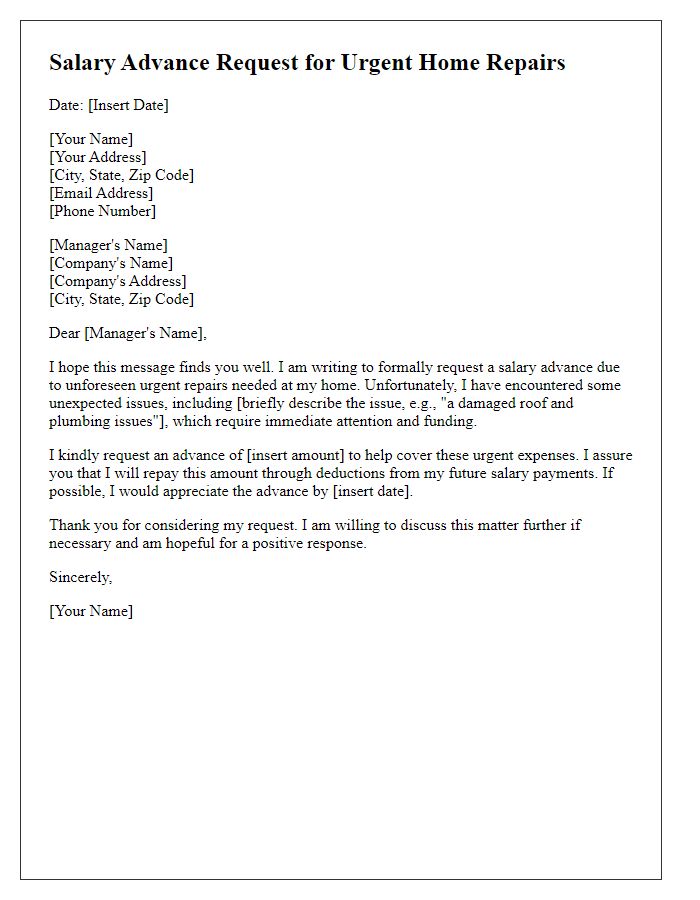
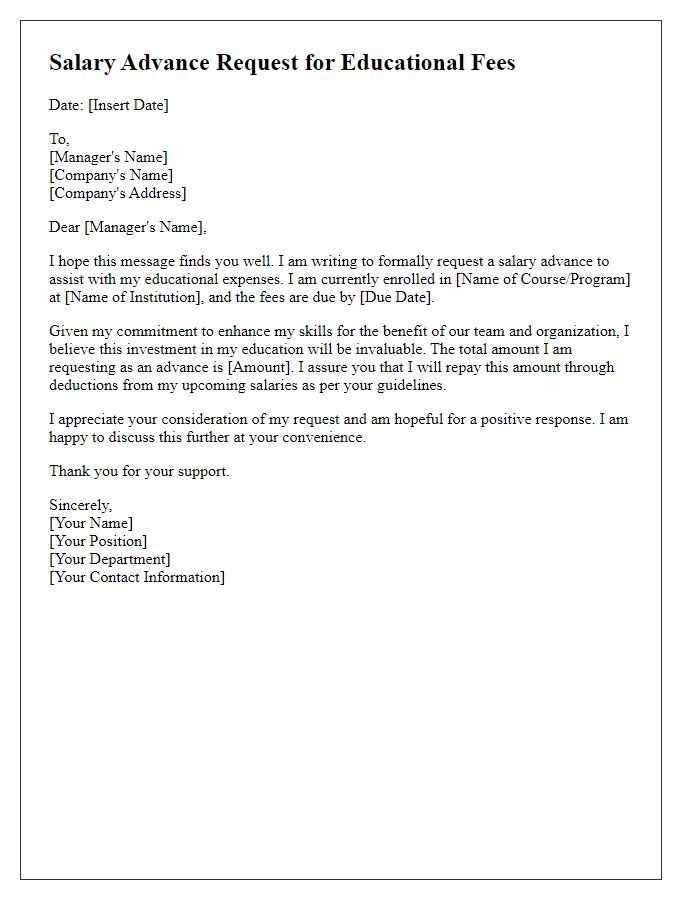
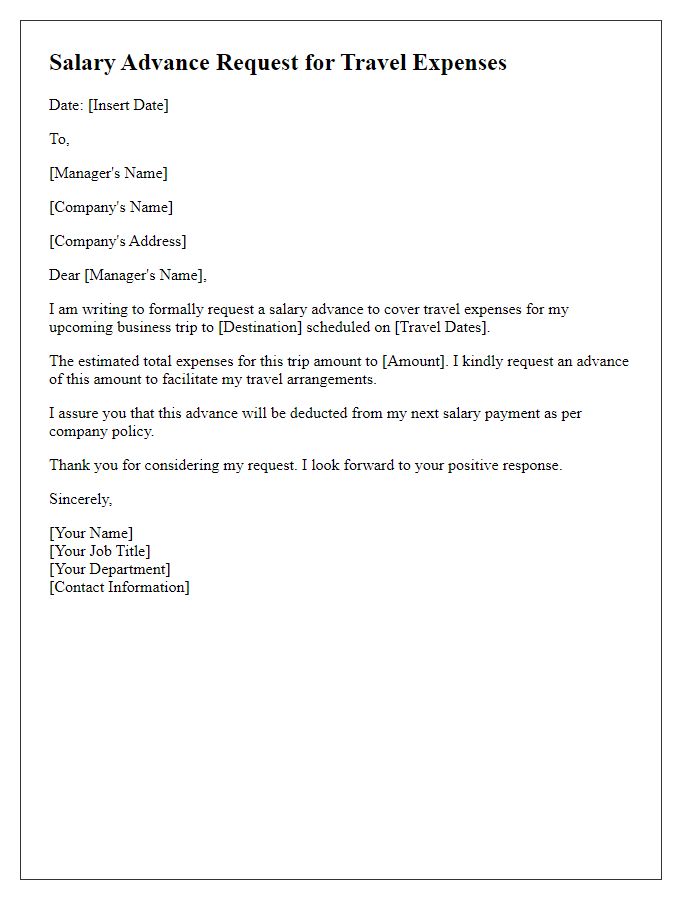
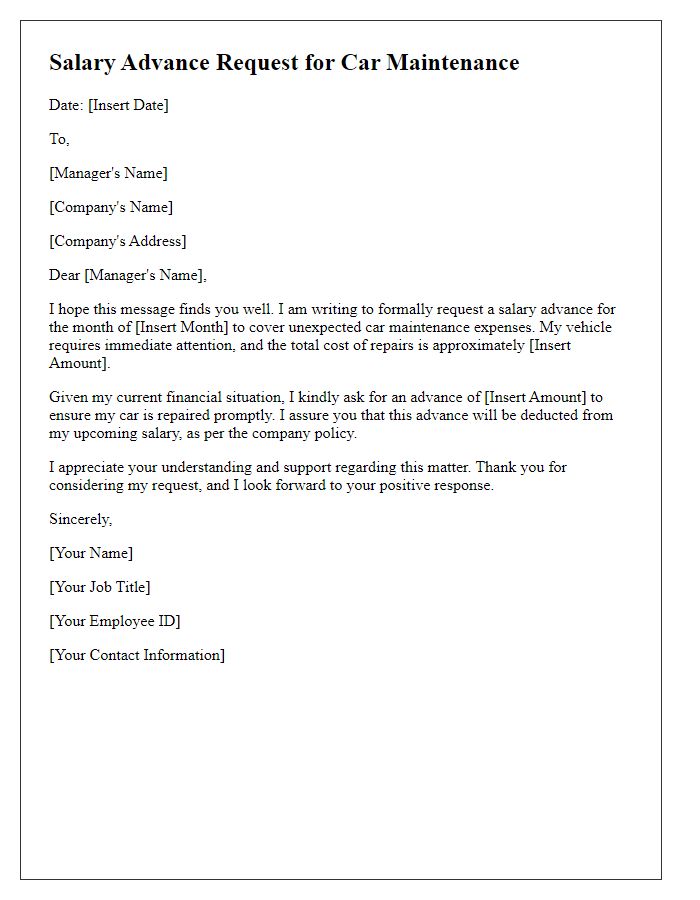
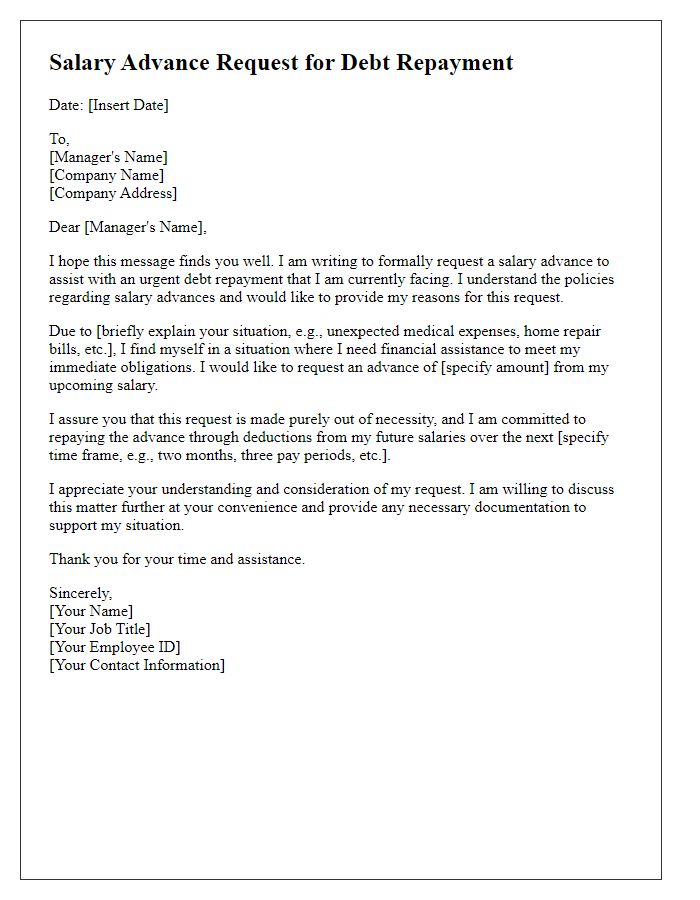
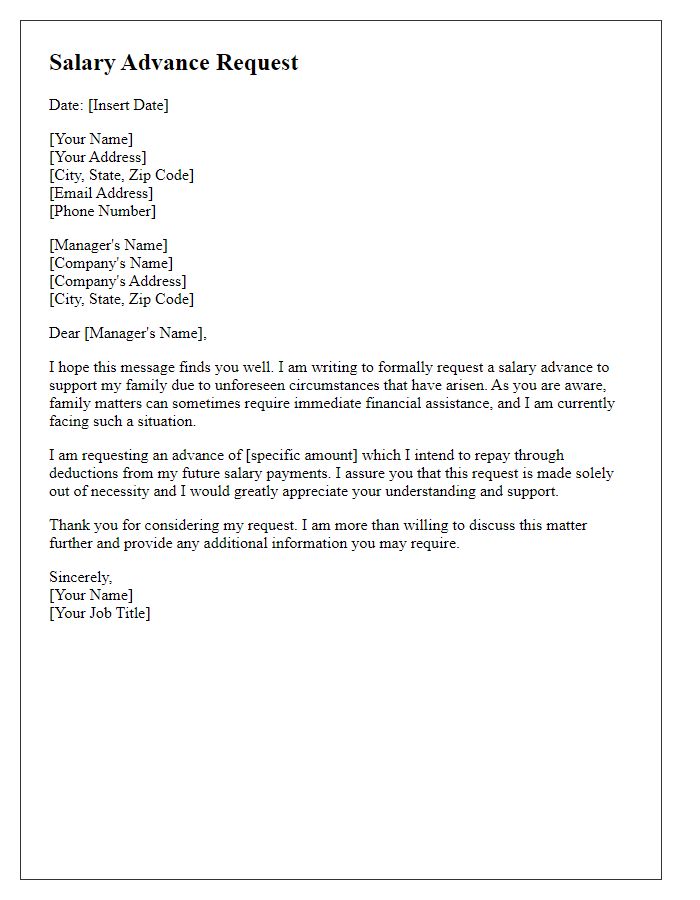



Comments